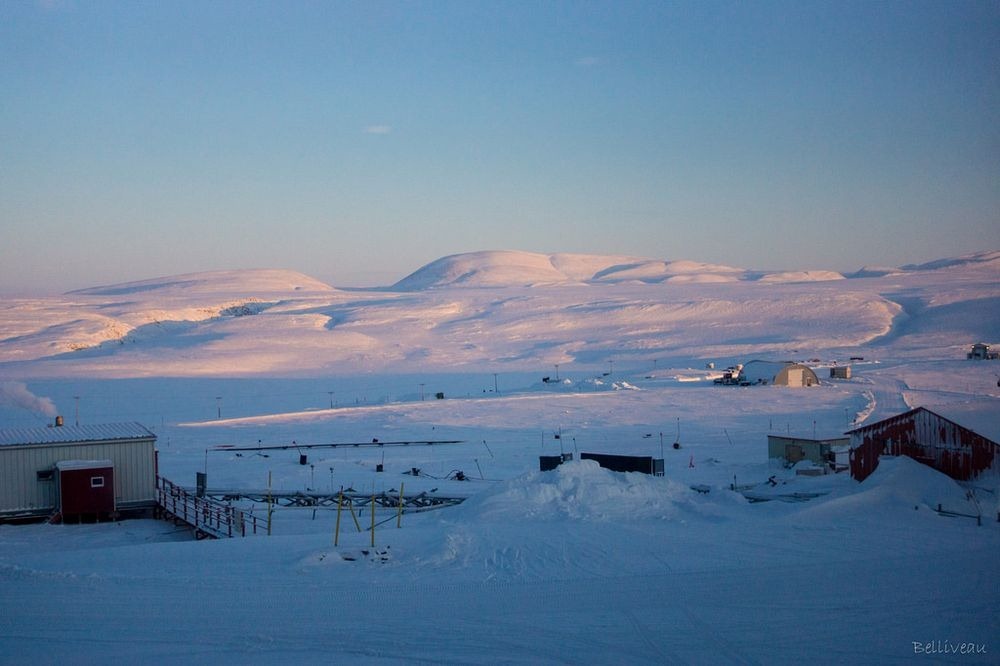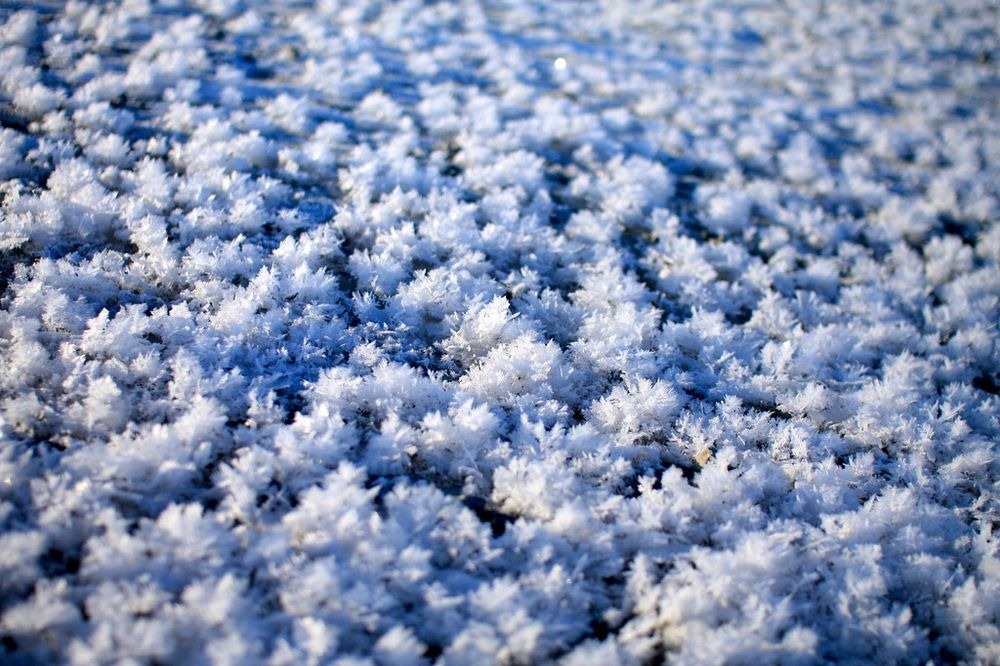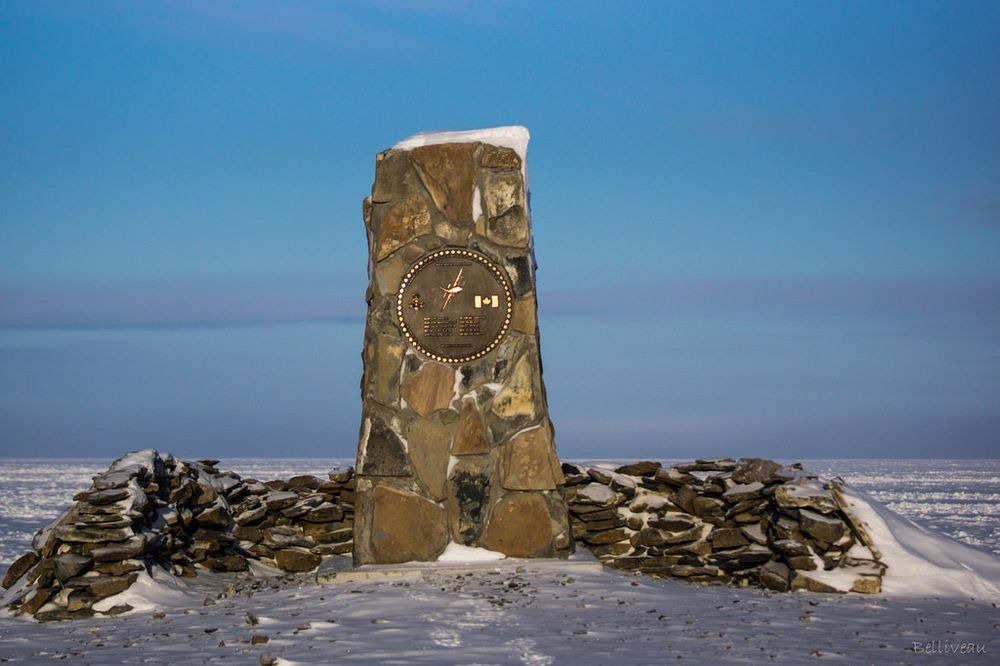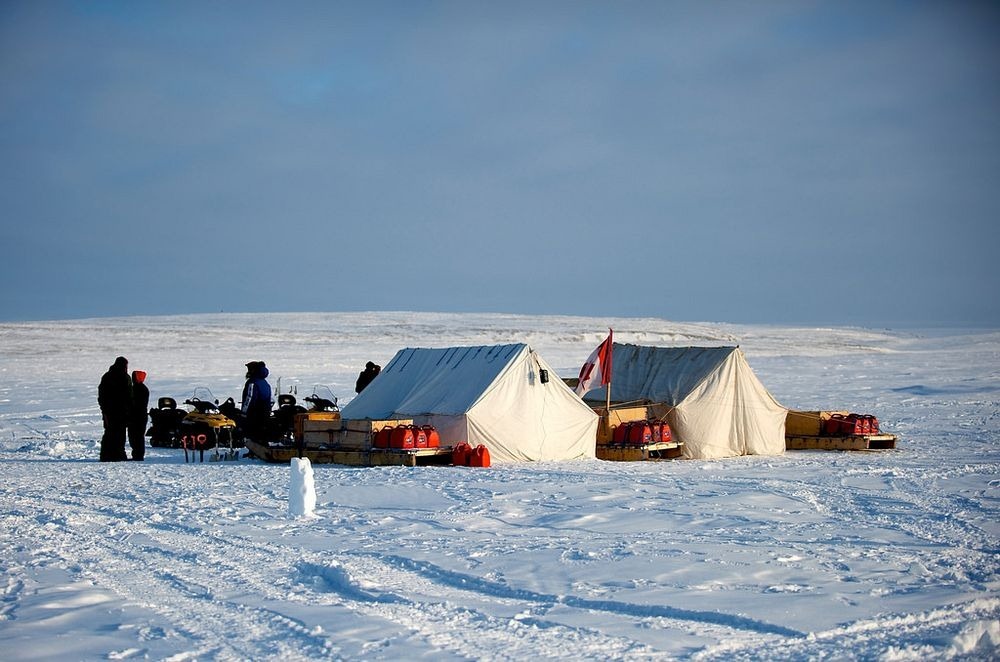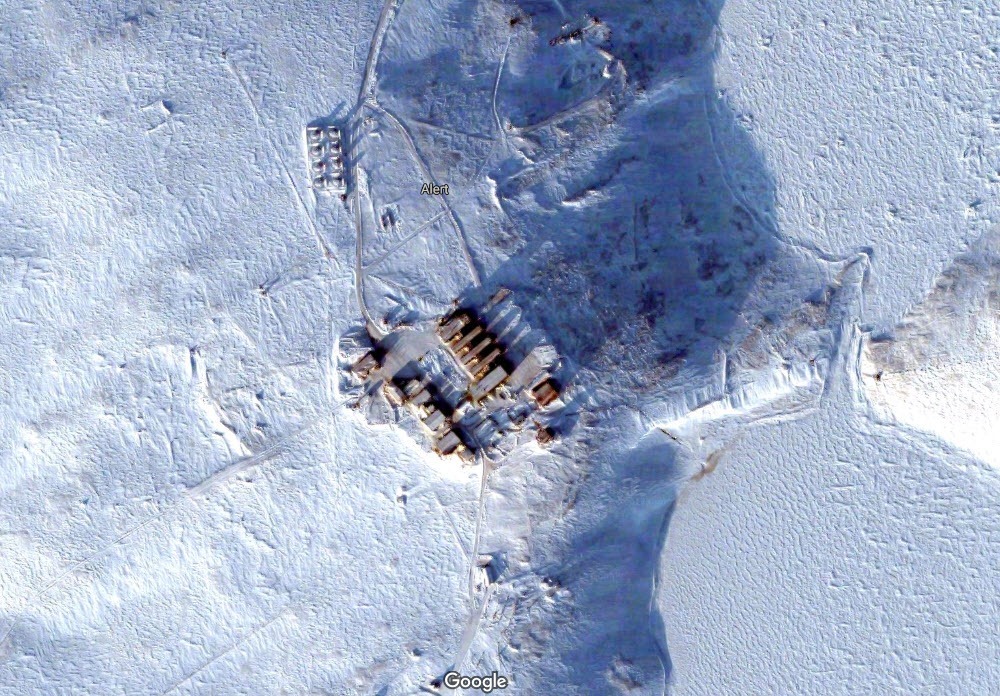Located just over eight hundred kilometers away from the North Pole, the community of Alert, on the northeastern tip of Ellesmere Island, in Nunavut, Canada, is the most northerly permanent settlement in the world. The nearest populated place is another 540 kilometers south, in Greenland, while the nearest Canadian city is over two thousand kilometers away. The place is so close to the North Pole that it can’t connect with communication satellites because their orbit lies below the horizon.

For four months, Alert exist in total darkness. For another four months, the sun never leaves the sky, but rising no more than 30 degrees above the horizon at noon. The land remains frozen and snow covered for almost ten months of the year. Winters are harsh and cold with temperatures regularly dropping thirty degrees below zero. Peak summer temperatures are just a couple of degrees above freezing.

At any time in this godforsaken place, you’ll find several dozen people living. Thankfully, Alert is not their permanent home; they are merely here on work.
These cold and miserable people, nicknamed “The Frozen Chosen”, include members of the Canadian Armed Forces —which maintains a signals intelligence intercept facility called CFS Alert— and scientific personnel working at the two research facilities here —the Environment Canada weather station and a Global Atmosphere Watch (GAW) atmosphere monitoring observatory.
The community of Alert is named after HMS Alert, a British ship which set up camp near Alert in the winters of 1875–76. The ship’s captain, George Nares, and his crew were the first recorded people to reach the northern end of Ellesmere Island.
The weather station was established here in 1950. The military station came eight years later. During the Cold War, Alert was strategically important because it was the only point in North America that was closest to the northwestern area of the Soviet Union. In fact, Alert is closer to Moscow (2,500 miles or 4,000 km) than it is to Ottawa (2,580 miles or 4,150 km). Alert’s proximity to the Soviet Union allowed the US-Canada-UK-Australia-New Zealand intelligence sharing alliance, also known as the Five Eyes, to eavesdrop on the Russian communication network. The station soon became a key asset in the global ECHELON network.
At its peak, CFS Alert had upwards of 215 personnel posted at any one time. But after budget cuts in the 1990s, CFS Alert was downsized to approximately 74 personnel, but during summers, its population can rise to over hundred.
A Sun newspaper article dated November 14, 2004, provides readers with a glimpse of life at Alert:
The soldiers, a lot of them volunteers, serve six month postings — divided by a three week vacation. Today, the food is as good as it ever was. TV’s in various rooms show four channels of live television and another four of movies, played from the stations stock of 4,500 video and DVDs. Listening to the base’s CHAR-FM 105.9 trivia shows are another popular pastime. Much of the station is devoted to recreation, with two gyms, a darkroom, a bowling alley and a theatre. Evenings are filled with activities — multi-player computer games, woodworking, bingo, euchre and trivia. Most personnel volunteer to come here. Like a crew inside a submarine, the isolation and uniqueness of Alert pull people together and drive others apart — earning them all the 50-year-old nickname of ‘The Frozen Chosen.”.
The only way to transport anything here is by air. Every year, the RCAF makes about 225 Hercules flights to Alert to bring in around two million litres of fuel and 300 tonnes of cargo. In addition to the weekly flights, supplies are shuttled in twice a year in massive operations involving dozens of flights to and from the nearest deep-water port, Thule, Greenland. The problem is, much of the time Canada’s Hercules C-130 aircraft aren’t flying. The resupply flights are routinely delayed 24 hours or cancelled altogether when planes are grounded by mechanical problems or diverted elsewhere by military priority.
Military physicians note most people gain weight after arriving. Those who aren’t able to deal with the remoteness are weeded out before they touch down on the gravel and snow runway. “It’s great to be here, but you must keep yourself busy all the time,” says Station Warrant Officer Serge Oullet in 2004. “We try to get people to socialize with each other in off hours.”



